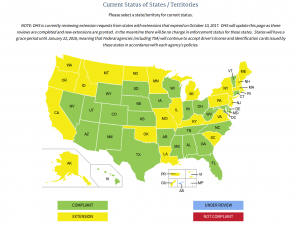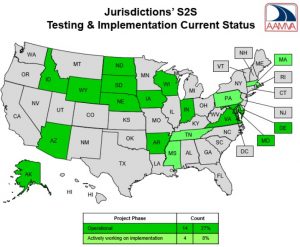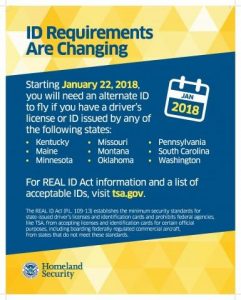Is your drivers license or state ID in the national REAL-ID database?
One of the major goals of the REAL-ID Act of 2005 was to create, and to pressure state governments to participate in, a national database of drivers’ licenses and state-issued ID cards.
The REAL-ID Act requires that, “To meet the requirements of this section, a State shall … Provide electronic access to all other States to information contained in the motor vehicle database of the State.”
In practice, the only available or affordable way for a state to comply with this part of the REAL-ID Act is to participate in the “State-to-State” (S2S) data sharing system operated by AAMVA and built by an AAMVA contractor, Clerus Solutions. AAMVA says that, “For those states … choosing to comply with REAL ID… the Department of Homeland Security has indicated that participation in S2S will be required for the state to be REAL ID compliant. This is because… the law and regulations governing REAL ID include requirements for state licensing agencies to connect their databases.”
Despite its name, which might be taken as implying that it is merely a messaging system, S2S relies on a centralized national database, “SPEXS”, which contains a record for each drivers’ license or ID card issued by any participating state or territory.
The DHS has been certifying states and territories as “compliant” with the REAL-ID Act, without regard for whether they have complied with this provision of the Federal law.
But that begs the question of how many states have uploaded information about how many of their residents to the national database in order to comply with the REAL-ID Act.
Are records of drivers’ licenses and ID cards issued by your state or territory already included in the national database? If not, when will they be?


